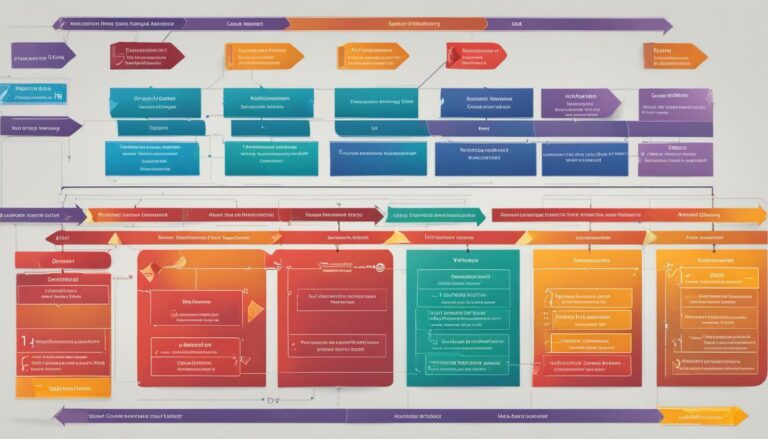Medical Conditions That Can Prevent You From Getting Canada PR
Obtaining permanent residency (PR) in Canada can be affected by various medical conditions, making it crucial to understand the implications of these health issues. Every person applying for a Canadian visa, whether for permanent or temporary status, is required to undergo a medical examination. This examination includes a review of medical history and immunization records, a physical and mental evaluation, drug and alcohol screening, and tests for various diseases and illnesses.
The Canadian government considers certain pre-existing conditions as health risks and may refuse medical admissibility based on mental health issues, illegal sexual behavior, substance abuse issues causing physical harm to others, active tuberculosis, or untreated syphilis. If an applicant receives a Procedural Fairness Letter indicating medical inadmissibility, it is important to consult with an experienced Canadian immigration lawyer to address the issue. In some cases, additional medical tests may be required.
The decision on medical inadmissibility is based on the results of the immigration medical exam. It is essential to seek professional guidance to navigate the complexities of medical inadmissibility in Canada. However, medical inadmissibility can be overcome through a Temporary Resident Permit if there are humanitarian and compassionate grounds for entry.
Key Takeaways:
- Obtaining Canada PR can be impacted by certain medical conditions.
- A medical examination is required for all Canadian visa applicants.
- Pre-existing conditions considered health risks may result in medical inadmissibility.
- Consulting with an experienced Canadian immigration lawyer is crucial if deemed medically inadmissible.
- A Temporary Resident Permit may provide a solution for medical inadmissibility based on humanitarian and compassionate grounds.
Understanding the Medical Examination for Canada PR
To ensure the health and safety of residents, the Canadian government mandates a thorough medical examination for individuals applying for PR in Canada. This examination is an integral part of the immigration process and plays a significant role in determining medical admissibility.
The medical examination consists of various components that aim to assess an applicant’s physical and mental well-being, as well as identify any potential health risks. The examination includes a review of the individual’s medical history and immunization records, a comprehensive physical and mental evaluation, and screening for drug and alcohol use. Additionally, applicants are tested for infectious diseases, such as tuberculosis and syphilis.
The Canadian government considers certain pre-existing conditions as health risks that may lead to medical inadmissibility. These include mental health issues, illegal sexual behavior, and substance abuse issues causing physical harm to others. If an applicant is deemed medically inadmissible, they may receive a Procedural Fairness Letter, which indicates the need for further action.
To address medical inadmissibility, it is important for individuals to seek guidance from an experienced Canadian immigration lawyer. They can provide valuable insights and assistance in navigating the complexities of the immigration process. In some cases, medical inadmissibility can be overcome through the obtainment of a Temporary Resident Permit based on humanitarian and compassionate grounds. It is vital to understand that the final decision regarding medical admissibility is based on the results of the immigration medical examination.
Pre-existing Conditions Considered as Health Risks
Certain pre-existing health conditions are regarded as potential health risks by Canadian immigration authorities, which can lead to refusals of PR applications. These conditions encompass a range of physical and mental health issues, as well as behaviors that pose a risk to public health and safety. It is important for applicants to be aware of these conditions and the potential impact they may have on their immigration process.
Some examples of pre-existing conditions that may be considered as health risks include mental health issues, such as severe depression or schizophrenia, that may require significant medical intervention or could potentially lead to harm to oneself or others. Similarly, individuals with a history of illegal sexual behavior, including sexual assault or exploitation, may also be deemed as posing a risk to public safety and may face refusal of their PR application.
Additionally, substance abuse issues that result in physical harm to oneself or others can also lead to medical inadmissibility. This includes cases where addiction may impair an individual’s ability to function and fulfill their responsibilities, potentially endangering the well-being of those around them. These pre-existing conditions are taken into consideration by Canadian immigration authorities to ensure the health and safety of both the applicant and Canadian society as a whole.
| Pre-existing Conditions | Potential Health Risks |
|---|---|
| Mental health issues | Severe depression, schizophrenia, potential harm to oneself or others |
| Illegal sexual behavior | Sexual assault, exploitation, risk to public safety |
| Substance abuse issues | Physical harm to oneself or others, impaired functioning |
If an applicant is deemed inadmissible due to a pre-existing health condition, it is crucial to consult with an experienced Canadian immigration lawyer for guidance. They can help navigate the complexities of the medical inadmissibility process, assess the available options, and provide support in seeking alternatives, such as a Temporary Resident Permit based on humanitarian and compassionate grounds. Professional assistance can greatly enhance the chances of addressing medical inadmissibility effectively and pursuing the desired Canadian PR status.
Infectious Diseases and Canada PR Medical Admissibility
The Canadian government takes infectious diseases seriously when assessing an individual’s eligibility for PR, particularly active tuberculosis and untreated syphilis. These diseases are considered health risks due to their potential impact on public health and the well-being of individuals.
During the medical examination for Canada PR, applicants are tested for these infectious diseases to determine their medical admissibility. The examination includes a thorough assessment of medical history, physical examination, and laboratory tests. Results from these tests play a crucial role in the immigration process, as they form the basis for the determination of an individual’s medical eligibility.
If an applicant is found to have active tuberculosis or untreated syphilis, they may be deemed medically inadmissible. This means that their PR application could be refused based on medical grounds. However, it is important to note that each case is assessed individually, taking into account various factors such as the severity of the disease and the potential impact on public health.
| Medical Condition | Risk Assessment |
|---|---|
| Active Tuberculosis | Considered a health risk due to its contagious nature and potential impact on public health |
| Untreated Syphilis | Considered a health risk due to its potential complications and the risk of transmission to others |
If an applicant receives a Procedural Fairness Letter indicating medical inadmissibility, it is crucial to seek professional guidance from an experienced Canadian immigration lawyer. They can provide assistance in understanding the options available and navigating the complexities of medical inadmissibility.
Addressing Medical Inadmissibility
Dealing with medical inadmissibility can be complex, and it is essential to seek professional assistance if you receive a Procedural Fairness Letter indicating such ineligibility. The Canadian government considers certain pre-existing conditions as health risks that may result in medical inadmissibility for Canada PR. These conditions include mental health issues, illegal sexual behavior, substance abuse issues causing physical harm to others, as well as active tuberculosis or untreated syphilis.
If you find yourself facing medical inadmissibility, it is crucial to consult with an experienced Canadian immigration lawyer who can guide you through the process. They can help you understand the reasons behind medical inadmissibility and explore possible solutions. One potential option to overcome medical inadmissibility is to apply for a Temporary Resident Permit (TRP) based on humanitarian and compassionate grounds. This permit allows individuals who are otherwise inadmissible to enter or remain in Canada for a specific purpose.
In some cases, additional medical tests or evaluations may be required to provide a more comprehensive assessment of your health condition. These tests can help provide further evidence to support your case and demonstrate that you pose no significant health risks to the Canadian public.
Remember, the decision on medical inadmissibility is based on the results of the immigration medical exam. Seeking professional guidance from a Canadian immigration lawyer who specializes in medical inadmissibility can help you navigate the complexities of this issue and increase your chances of a successful outcome.
| Medical Conditions | Consequences |
|---|---|
| Mental Health Issues | May result in medical inadmissibility |
| Illegal Sexual Behavior | May result in medical inadmissibility |
| Substance Abuse Issues Causing Physical Harm to Others | May result in medical inadmissibility |
| Active Tuberculosis | May result in medical inadmissibility |
| Untreated Syphilis | May result in medical inadmissibility |
Additional Medical Tests and Requirements
Depending on the circumstances, additional medical tests or requirements may be necessary to provide a more detailed evaluation of an individual’s health condition. These additional tests can help immigration authorities make a more informed decision regarding the applicant’s medical admissibility for Canada PR. The need for these tests is determined on a case-by-case basis, taking into consideration factors such as the applicant’s medical history, the severity of the condition in question, and the potential impact on public health and safety.
One example of an additional medical test that may be required is a specialized screening for infectious diseases. This can include tests for HIV, hepatitis, or other communicable diseases that are of concern to Canadian health authorities. This screening helps to ensure that individuals who may pose a risk to public health are identified and appropriate measures can be taken to protect the well-being of the Canadian population.
| Medical Test | Requirement |
|---|---|
| Specialized Infectious Disease Screening | May be required depending on the individual’s medical history and the risk assessment. |
| Mental Health Evaluation | May be required for individuals with a history of mental illness or when there are concerns about the individual’s ability to adapt to life in Canada. |
| Medical Specialist Consultation | May be necessary when the reviewing medical officer requires further expertise or clarification on specific medical conditions. |
It’s important to note that these additional tests and requirements are not meant to discriminate against individuals with medical conditions. They are in place to ensure the health and safety of both the applicant and the Canadian population. Consulting with an experienced Canadian immigration lawyer can help individuals navigate these requirements and provide guidance on the best course of action to address any medical inadmissibility concerns.
Navigating Medical Ineligibility in Canada PR
Given the intricacies involved in addressing medical ineligibility for Canada PR, it is advisable to seek the assistance of a knowledgeable Canadian immigration lawyer. Applying for permanent residency in Canada can be a complex and daunting process, especially when medical conditions are a determining factor. Understanding the implications of medical inadmissibility and the available options for overcoming it is essential.
When faced with a Procedural Fairness Letter indicating medical inadmissibility, it is crucial to consult with an experienced Canadian immigration lawyer. They can provide guidance and support in addressing the issue effectively. These lawyers have the knowledge and expertise to navigate the complexities of medical ineligibility and can help applicants understand their options for moving forward.
It is important to note that medical inadmissibility can be overcome in certain cases. Individuals facing medical ineligibility may be eligible for a Temporary Resident Permit (TRP) based on humanitarian and compassionate grounds. A TRP allows individuals to enter or remain in Canada despite their medical inadmissibility. However, obtaining a TRP requires a strong legal argument and supporting documentation, which is why seeking professional assistance is crucial.
By working with a knowledgeable Canadian immigration lawyer, applicants can navigate the intricacies of medical ineligibility and increase their chances of overcoming this hurdle. These lawyers can provide guidance on additional medical tests that may be required, assist in interpreting immigration medical exam results, and help applicants present a strong case for overcoming medical inadmissibility.
Overcoming Medical Inadmissibility
Individuals facing medical inadmissibility for Canada PR may have the option of obtaining a Temporary Resident Permit based on humanitarian and compassionate grounds. This permit provides an opportunity for individuals to enter or remain in Canada despite being medically inadmissible. It is essential to understand the criteria and process involved in applying for this permit.
If a person receives a Procedural Fairness Letter indicating medical inadmissibility, seeking guidance from an experienced Canadian immigration lawyer is crucial. They can provide expert advice and assistance throughout the application process, ensuring that all necessary documents and evidence are submitted effectively.
Criteria for a Temporary Resident Permit
The Canadian immigration authorities consider various factors when assessing eligibility for a Temporary Resident Permit on humanitarian and compassionate grounds. These factors include:
- Demonstrating that the individual’s medical condition does not pose a risk to public health or safety
- Showcasing the potential positive contribution the individual can make to Canadian society
- Providing supporting evidence of the individual’s ties to Canada, such as family relationships, employment opportunities, or community involvement
To support the application, it is important to gather comprehensive medical documentation, including reports from specialists, treatment plans, and any relevant testimonials. These documents should clearly outline the severity of the condition, the impact on the individual’s life, and the potential benefits of granting the Temporary Resident Permit.
| Key Documents for a TRP Application |
|---|
| Medical reports and documentation |
| Specialist recommendations |
| Supporting statements from individuals familiar with the applicant’s condition |
| Evidence of ties to Canada, such as family relationships, employment opportunities, or community involvement |
It is important to note that the decision on medical inadmissibility is ultimately based on the results of the immigration medical exam. Seeking professional guidance from an experienced Canadian immigration lawyer is crucial to navigate the complexities of the process and increase the chances of a successful outcome.
Understanding the Impact of Immigration Medical Exam Results
The results of the immigration medical exam play a crucial role in determining an individual’s medical admissibility for Canada PR, underlining the need for professional guidance in interpreting and addressing the results. These exams are designed to assess an individual’s overall health and potential risk factors, ensuring the safety and well-being of both the applicant and the Canadian population.
During the medical examination, various components are evaluated to determine an individual’s medical admissibility. This includes a review of the applicant’s medical history and immunization records, as well as a thorough physical and mental evaluation. Drug and alcohol screening, as well as tests for infectious diseases, are also conducted to identify any potential health risks.
The Canadian government takes certain pre-existing conditions seriously, such as mental health issues, illegal sexual behavior, and substance abuse issues causing physical harm to others. If an applicant is found to have any of these conditions, they may be deemed medically inadmissible for Canada PR. In such cases, it is crucial to consult with an experienced Canadian immigration lawyer to navigate the complexities of the situation effectively.
| Medical Conditions | Impact on Canada PR |
|---|---|
| Mental Health Issues | Can result in medical inadmissibility |
| Illegal Sexual Behavior | Can lead to medical inadmissibility |
| Substance Abuse Causing Physical Harm | May result in medical inadmissibility |
In some cases, an applicant may receive a Procedural Fairness Letter indicating medical inadmissibility. This is a formal notice that outlines the reasons for the refusal and provides the individual with an opportunity to respond before a final decision is made. Seeking guidance from an experienced Canadian immigration lawyer is crucial during this stage to address the issue effectively and explore potential solutions.
If an applicant is deemed medically inadmissible, there is still a possibility of overcoming this hurdle through a Temporary Resident Permit based on humanitarian and compassionate grounds. This permit allows individuals to enter or stay in Canada despite their medical inadmissibility, provided they can demonstrate compelling reasons and extenuating circumstances.
Given the significance of immigration medical exam results, it is important to consult with professionals who have experience in navigating the complexities of medical inadmissibility in Canada. They can help interpret the results, provide guidance on addressing any concerns, and assist in finding suitable solutions to overcome medical inadmissibility and achieve Canada PR.
Conclusion
Aspiring Canadian permanent residents must be aware of the potential impact of medical conditions on their eligibility, making it crucial to seek professional guidance when faced with medical inadmissibility.
When applying for Canadian permanent residency, individuals are required to undergo a thorough medical examination. This examination includes a review of medical history, physical and mental evaluations, and disease screenings. Certain pre-existing conditions, such as mental health issues, illegal sexual behavior, and substance abuse causing harm to others, may be considered health risks by Canadian immigration authorities.
If an applicant receives a Procedural Fairness Letter indicating medical inadmissibility, it is important to consult with an experienced Canadian immigration lawyer for guidance. Overcoming medical inadmissibility may be possible through a Temporary Resident Permit based on humanitarian and compassionate grounds. In some cases, additional medical tests may be required to provide a more comprehensive assessment of an individual’s health condition.
It is crucial to note that the decision on medical inadmissibility is based on the results of the immigration medical exam. Professional guidance is essential to navigate the complexities of medical inadmissibility in Canada and ensure the best possible outcome for aspiring permanent residents.
FAQ
Q: Can certain medical conditions prevent me from obtaining Canada PR?
A: Yes, certain medical conditions can result in medical inadmissibility for Canada PR.
Q: What does the medical examination for Canada PR entail?
A: The medical examination includes a review of medical history and immunization records, a physical and mental evaluation, drug and alcohol screening, and tests for various diseases and illnesses.
Q: What pre-existing conditions are considered health risks by Canadian immigration authorities?
A: Pre-existing conditions such as mental health issues, illegal sexual behavior, and substance abuse issues causing physical harm to others may be considered health risks.
Q: Which infectious diseases can impact medical admissibility for Canada PR?
A: Active tuberculosis and untreated syphilis are examples of infectious diseases that may impact medical admissibility for Canada PR.
Q: How can I address medical inadmissibility for Canada PR?
A: If you receive a Procedural Fairness Letter indicating medical inadmissibility, it is important to consult with an experienced Canadian immigration lawyer for guidance.
Q: Are there additional medical tests or requirements for medical inadmissibility cases?
A: Depending on the specific case, additional medical tests or requirements may be necessary to provide a more comprehensive assessment of an individual’s health condition.
Q: How can I navigate the complexities of medical inadmissibility in Canada PR?
A: It is recommended to seek professional guidance, particularly from an experienced Canadian immigration lawyer, to navigate the complexities of medical inadmissibility.
Q: Is it possible to overcome medical inadmissibility for Canada PR?
A: In some cases, medical inadmissibility can be overcome through a Temporary Resident Permit based on humanitarian and compassionate grounds.
Q: How significant are immigration medical exam results for Canada PR?
A: Immigration medical exam results play a crucial role in determining medical admissibility for Canada PR, making it important to seek professional guidance to interpret and navigate the results.
Source Links
- https://www.visaplace.com/canadian-immigration/denied-entry-to-canada/canada-health/
- https://www.canadavisa.com/overcome-medical-inadmissibility-to-canada.html
- https://www.cicnews.com/2023/04/understanding-medical-inadmissibility-to-canada-0431755.html







